- Home
- Jerry B. Jenkins
The Valley of Dry Bones Page 2
The Valley of Dry Bones Read online
Page 2
A tall, black man in his midthirties, sitting next to his wife and a young son and daughter, stood quickly. “Our vehicles, Zeke—”
“I know, Doc. But they don’t know where we are, and they’re not likely to want to track us this far in this heat. If they do, we’ll see ’em coming.”
The doctor’s shaved head glistened. “And then what?”
“Are you armed?”
“Zeke! We planning a shoot-out with your daughter and my kids right here?”
“Let’s not invent trouble. If they actually find us, who knows? It might be someone I’ve bought water from before.”
The doctor sat back down, shaking his head. “Just like you to assume a best-case scenario. I’d feel better getting out of here right now.”
“All due respect, Doc, but you pick the wrong time for that and you could lead ’em right to us.”
Pastor Bob ran a hand through his thinning white hair. “Let’s none of us do anything rash. While we’re here for this purpose, this place is a sanctuary. I take seriously my role as your shepherd, but should any outside force try to invade, as always, elder Ezekiel Thorppe will take charge. And Sasha, in light of the potential danger, I think we’ll dispense with the corporate singing this morning.”
She already had the pitch pipe out, and Zeke noticed her shoulders slump.
The pastor must have noticed too. He added, “Perhaps you’d simply like to sing one of the selections for us after I pray?”
That seemed to please her.
“Father,” Pastor Bob began, “we’re scared. We’re exhausted. We’re hungry. And we’re always thirsty. Whatever right we believed we had to pursue happiness has been sacrificed to Your cause and the mission You’ve assigned us in the devastation and chaos in which we find ourselves. We believe in You, in Your love and Your grace and Your faithfulness. Most of all, we trust in Your sovereignty.
“And so we thank You and praise You for our deep sense of joy in our future, for of that we are certain. We offer this thanks and praise in the matchless name of our Lord and Redeemer, Your Son and our Savior, Jesus the Christ. Amen.”
Pastor Bob nodded to Sasha, who began to sing barely above a whisper the old, familiar hymn “My Redeemer.”
I will sing of my Redeemer,
And His wondrous love to me;
On the cruel cross He suffered,
From the curse to set me free.
Sasha sang with such passion that it took nearly a minute for her to get through the first verse. Zeke heard sniffles all over the room and chairs creaked as people dropped to their knees. Soon everyone followed suit, including he and Alexis and Pastor Bob and his wife, Jennie.
Sing, oh sing of my Redeemer,
With His blood He purchased me.
On the cross He sealed my pardon,
Paid the debt and made me free.
Zeke could see in his peripheral vision that Katashi was still standing, but even he was wiping his eyes. If the Hydro Mongers chose that moment to burst in, his only defense would be surprising his attackers with a posture of humility. Even Dr. Adam Xavier, his wife, Gabrielle, and their kids, Caleb and Kayla, were on their knees, tears streaming.
Pastor Bob let the silence play out as everyone remained on their knees for several minutes. Finally, when they moved back into their seats, he said, “Thank you, Sasha. God is here.” He moved in front of the table and sat atop it, next to the picture of Ezekiel Jr. He glanced at his watch. “Before we begin, you’re free to take a swallow of water now, if you’d like.”
Most everyone quickly sipped from their daily allotment, though Zeke did not. He’d been training himself to get by on less and less. He wasn’t yet sure why. It just seemed prudent, and he enjoyed the discipline and what he was learning from it, both psychologically and scientifically.
Pastor Bob continued, “First, we will remember a precious life. Several will be sharing, some of how his death brought you to us and gave you life. Second, I have a brief message from Jeremiah chapter one. And third, Jennie and I have a bit of news. Alexis, if you’re ready?”
Zeke froze at the press of a hand on his shoulder and a voice in his ear. “Listen to me.”
He nodded. How was it possible a Monger had slipped in and gotten behind him? The one entrance was secure. They’d been on their knees, but still.
He wanted to reach for his Glock, but surely whoever was behind him had the advantage. Pastor Bob couldn’t see this man? Nor Katashi? Was he crouched? Was Zeke hallucinating? Maybe he should have had some water.
Alexis put a fluttering hand on Zeke’s thigh and rose. So she knew?
The man’s hand still lay on Zeke’s shoulder, and he had heard him plain as day. He casually turned his head to the right to get a glimpse of the hand. Nothing. He wrenched farther and finally spun around in his seat, yanking out the .45.
No one was there.
2
“LISTEN TO ME!”
“EZEKIEL?” SHE SAID, just above a whisper, a hand flying to her throat.
“Sorry, love,” he said, sitting with his gun out. “Nothing.”
Zeke knew Alexis was nervous enough without this distraction. It wasn’t that she had a problem speaking. Or with confidence. She was an artist, after all, had been an interior decorator before the kids came along. She had taught at both El Camino College and the University of Redlands. She had pitched ideas to high-level executive teams at some of the largest corporations in Los Angeles. But now, standing before her family and the tiny cadre of brothers and sisters in the faith she lived with, she struck her husband as fragile.
And before she could even open her mouth, he had startled her—and everyone else—by lurching at what, a phantom?
Alexis gathered herself and dug a tiny folded card from her palm. Fingers shaking, she unfolded it, though Zeke knew she wasn’t likely to forget a single detail.
“I still find it hard to believe Junior has been in heaven longer than he was with us,” she began. “You’d expect a mother to idealize a boy who didn’t live past seven, and I’m guilty. It was a year before I allowed myself to remember that he was his father’s son. He was all boy—stubborn, even ornery sometimes.”
That made the others chuckle.
“But he was like his daddy, too, in how he loved me. Sweet and thoughtful. Like most of you, we went to Pastor Bob’s Church in Torrance. Junior loved everything about Sunday school, all the stories and songs and fun. I prayed with him to receive Jesus when he was six. That didn’t make him perfect. He could still disobey. In fact that’s what he was doing the day he died.”
She stopped to gather herself just when Zeke again sensed someone behind him. This time it was a hand on each shoulder, and this time he didn’t hesitate. He leapt to his feet and whirled, causing everyone to jump. Again seeing nothing, he quickly covered and whispered, “Katashi, sit. I’ll take the window for a while.”
“I’m okay, Zeke.”
“No, please.”
Katashi looked embarrassed by the attention, but Sasha was squinting directly at Zeke, clearly puzzled. He forced a smile, but she didn’t look away.
“We had a fenced-in backyard,” Alexis continued, “and he’d been punished before for leaving it. That day I made him come inside while I put Sasha down for a late afternoon nap. She had just turned three that week. I heard Junior in the kitchen while I was reading to her. And then I didn’t hear him. If you’re a parent, you hate that sound . . .”
Zeke was so rattled by the hallucinations—or whatever they were—that he worried they portended an attack by the Mongers. He peered out the slit in the window.
“Zeke?” Alexis said, startling him. “I’m up to where I called to tell you I couldn’t find Junior.”
“Right, sorry. So, Mahir here”—Zeke pointed at a French man with a dark-complexion about his age—“and I were working on a project at the California Department of Water Resources substation in Lakewood . . .”
He told of how he and Mahir had raced home,
only to learn the awful news, and how Mahir watched little Sasha while Zeke and Alexis went to the hospital to identify Junior’s body. “But I had so many questions,” Zeke said. “All we knew was what the officer had put in his report. I was desperate to know more. Was he killed instantly? Did he say anything? Was anyone with him? That’s when we met our angel.”
The widow Elaine Meeks, sixty now, stared at the floor as she spoke. “I was about to get in my car when I heard all the noise and looked up just in time to see the truck lurch. I knew it had to be bad. I used to be a nurse, so before I knew it I was at your Junior’s side.” She paused and looked into Alexis’s eyes. “I’ve always believed it was God’s gift to me to get to be with your precious boy just before he went to heaven, and I know that’s where he is, because he told me that’s where he was going.
“But then I did something way out of character. Katashi was in a bad way, and I was worried what he would do.”
Katashi spoke up. “The only thing that kept me from killing myself was that I didn’t know what would happen to me when I died. Mrs. Meeks had told Junior he could be in heaven with God, and he said he already knew all about that. I couldn’t believe it! He was scared of dying, like anybody would be, especially a child. But he believed with all his heart that he was going to heaven. After the police took my statement, Mrs. Meeks was there waiting, as if she knew I wanted to talk to her.”
“I thought you might need a friend,” Elaine said.
Elaine’s and Katashi’s stories never failed to move Zeke, and he never grew tired of hearing how Junior knew he was going to heaven. The room had begun to warm with the body heat and the peaking of the sun, and he squinted out the window down the boulevard. Ironic that he and his friends still called it that. True, a few street signs still dangled with hints of that name visible, despite unyielding irradiance from the sun since the day Ezekiel Jr. had been born.
What Zeke and his friends still called a boulevard had once been a bustling thoroughfare of commerce. Now the unrelenting heat from dawn to dusk made for billowing clouds of fine silt at any footstep or tire on former pavement. Even concrete and asphalt had given way to the ravages of nature.
Every other debilitating drought in the history of the state had been attributed to lack of precipitation. But just four years into this one—when it had already been deemed the worst in more than a millennium—it was determined to be entirely temperature-driven. Zeke, in his early twenties then, had predicted catastrophe if things didn’t change, but nothing on this scale.
Suddenly the voice rang clear in his ear again, “That was My doing.”
Great. He was losing his mind. Should he be surprised? It hadn’t taken long for the most populous state in the union to become the least populous. Sane people? Gone. Yet here he was with a small crew of holdouts as fanatical as he. As cathartic as this meeting was, remembering how God had used such tragedy to bring them all together, all he wanted now was for it to be over so he could get Alexis alone and tell her.
But what would he say? I’m hearing voices? Problem was, it was more than that. What about those phantom touches? At least this time he kept from jumping and causing everyone else to panic. What would Lexi think? All she needed was a husband with his crazy on.
Zeke saw dust on the horizon and hoped it meant only a breeze. He turned back when the room fell silent. Mahir’s hand was in the air. “Excuse me, Zeke,” he said, a hint of French still in his tone. “You don’t look so good. Want me to watch so you can sit down?”
“Yes,” Doc said, leaning forward and peering at him. “You all right, Zeke?”
“Sure, I’ll sit. Thanks.”
As Mahir moved past him, Zeke whispered, “Keep an eye on the horizon, see?”
When Zeke sat, Sasha slid next to him and laid her head on his shoulder, which moved him. He hoped whatever was tormenting him would not be obvious. She caressed his back. “You all right, Daddy?”
He nodded, but almost immediately something forced him straight up and pressed him back in his chair. Without meaning to, he had pushed his daughter aside. Zeke tried to make it appear as if he were just shifting his weight, so he kept his eyes on Katashi and casually draped his arm around Sasha, fighting to maintain composure. The hand in his lap balled into a fist so tight his knuckles were white and his biceps quivered.
And here came the voice again.
“Listen to Me! I am that I am.”
Lord! It’s You?
“My mercy is from everlasting to everlasting on those who fear Me, and to those who remember My commandments. I have established My throne in heaven, and My kingdom rules over all. Listen to Me! Hear Me!”
Zeke lurched forward again, elbows on his knees, head in his hands, tears streaming, praying silently, I hear You, Lord! I’m listening!
“Daddy!” Sasha whispered, and Zeke heard Pastor Bob approach and lay a hand on his back.
“Let’s give Zeke a minute. He’s told us he’s all right, but benchmark anniversaries like these are hard, and you never know how they’re going to affect you. Let’s pray. Father, be with our brother in a special way, we ask in the name of Your Son. Amen.”
Zeke thought that might have been one of the least necessary entreaties in history. For God was saying to him even then, “And it shall come to pass in the last days that I will pour out My Spirit on all flesh. Your sons and daughters shall prophesy, your young men shall see visions, your old men shall dream dreams.
“And on My menservants and on My maidservants I will pour out My Spirit in those days; and they shall prophesy. I will show wonders in heaven and signs in the earth: blood and fire and smoke. The sun shall be turned into darkness, and the moon into blood, before the coming of the great and awesome day of the Lord.
“And it shall come to pass that whoever calls on the name of the Lord shall be saved.”
3
DEATH BRINGS LIFE
EZEKIEL THORPPE WAS NOT from a tradition comfortable with outward manifestations of the Spirit of God, let alone dramatic ones. He didn’t quarrel with those who went in for that sort of thing, though he suspected much of it was exaggerated. If they were raised that way, he thought, fine, let’s consider it a “distinctive” or a “denominational preference,” certainly nothing over which to split hairs or break fellowship. He had grown fond of saying, “I quit drawing lines in the sand when I realized how few of us were left on the beach” and felt magnanimous when he said it.
Well, terrific. Now what was he going to say? God Himself had invaded Zeke’s cozy little theological cottage and spoken to him the way He had the saints of old. Zeke wasn’t sure exactly what He wanted yet, but listening up was clearly a no-brainer. God had his attention all right. Either that or Zeke had a first-class, one-way ticket to Cuckooville.
Mahir seemed riveted by something outside, but Zeke knew he would say something if he feared a legitimate threat. He decided to relax. He sensed the support of his friends, even if they did assume his discomfort came from reliving the worst night of his life. How he and Alexis got through that, not to mention the next year, he still couldn’t say—apart from God, of course.
He’d known supernatural grace as he’d seen others bear inconceivable trials. Any parent has imagined the worst of all tragedies, but no one could know how they’d hold up under it until it came. Zeke knew people expected him to say they had probably been in shock and might not have clearly remembered the first twenty-four to forty-eight hours after the tragedy, but that wasn’t true—at least the amnesia part. He and Alexis had revisited it endlessly over the past decade, and while naturally their hearts and spirits, and yes, even their bodies, had shifted into some sort of self-preservation mode, they believed they remembered everything.
Now as Katashi and Elaine recalled the meeting at his place, it was as if Junior were suspended in time, tireless, lithe, running, jumping, climbing, smiling, eager for the next adventure. What kind of a seventeen-year-old would he have become? Rebellious and sullen? Unwilling to live
in the godforsaken desert California had become? Or brilliant and task-oriented, impatient for the next challenge?
Katashi was saying, “I’ll never forget Alexis telling me, ‘I only want to blame you so I don’t have to blame myself, or the building owner for not having enough security, or God for taking him too soon.’
“I kept telling her, ‘No, no! Blame me! It’s my fault! I should have waited, should have checked!’
“But she told me, ‘We wouldn’t have come if that’s how we felt. We know you feel bad and that you will have to live with this all your life too. We just want you to know we forgive you, that we know it was an accident.’
“Who does that? I had to know! First their boy knew he was going to heaven. Then they forgave me for killing him. Truthfully, I wished they’d yelled at me, hit me, tried to kill me. That’s what I deserved. That would’ve made me feel better, if anything could have.
“As soon as they left I called Raoul. He’d heard all about it from someone who called him from work, and he invited me over. I told him I didn’t want to bother him when he was sick, but he told me he had just called in sick to get the day off. That made me mad. Everything just burst from me and I cussed him out and told him it was all his fault, that if he’d been there it wouldn’t have happened. He hung up on me, and I didn’t care if I ever saw him again. Now I had lost everything, including my best friend, and I really didn’t want to live anymore.”
Katashi broke down. “Bear with me,” he said, holding up a hand. “I’m here, so you know this ends well.”
“And I’m here too,” Raoul said. “So it gets better.”
“Raoul showed up within ten minutes,” Katashi said. “He told me he didn’t like something in the way I sounded. He said he’d heard fatalism in my voice.”
“And I don’t even understand Japanese people, you know,” Raoul said, making the others chuckle. “I never have.”

 The Betrayal
The Betrayal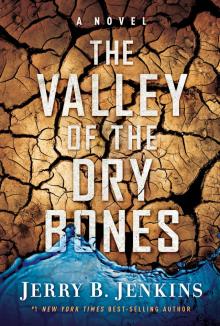 The Valley of Dry Bones
The Valley of Dry Bones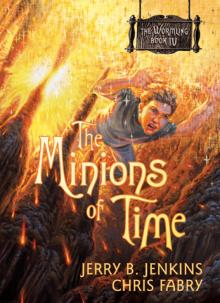 The Minions of Time
The Minions of Time Wild Rescue
Wild Rescue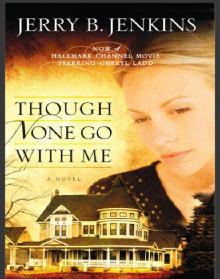 Though None Go with Me
Though None Go with Me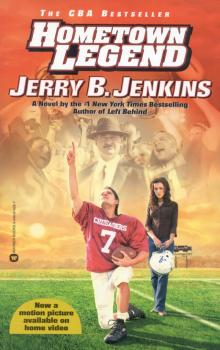 Hometown Legend
Hometown Legend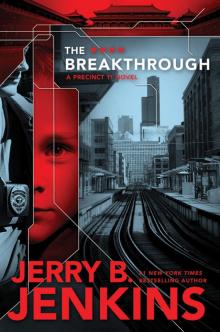 The Breakthrough
The Breakthrough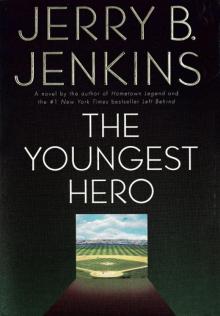 The Youngest Hero
The Youngest Hero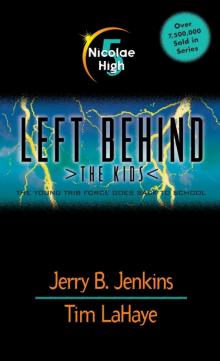 Nicolae High
Nicolae High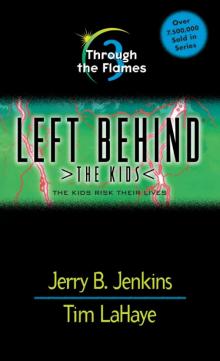 Through the Flames
Through the Flames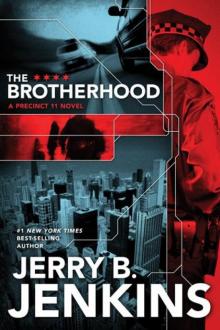 The Brotherhood
The Brotherhood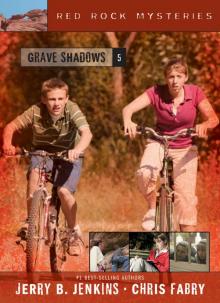 Grave Shadows
Grave Shadows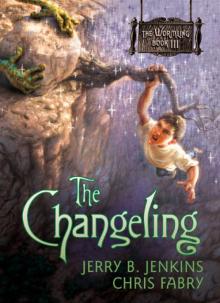 The Changeling
The Changeling Shadowed
Shadowed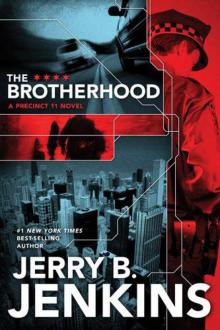 Precinct 11 - 01 - The Brotherhood
Precinct 11 - 01 - The Brotherhood Second Chance
Second Chance Silenced
Silenced The Vanishings
The Vanishings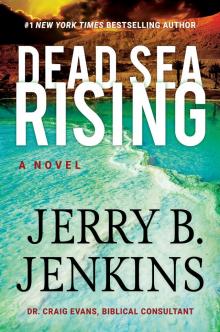 Dead Sea Rising
Dead Sea Rising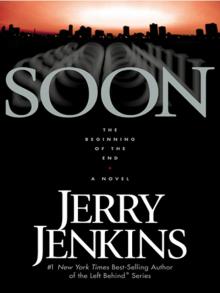 Soon
Soon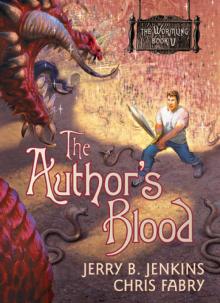 The Author's Blood
The Author's Blood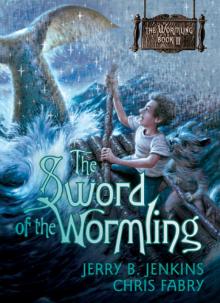 The Sword of the Wormling
The Sword of the Wormling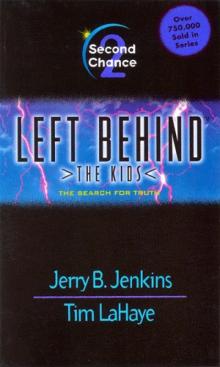 Left Behind - The Kids 02 - Second Chance
Left Behind - The Kids 02 - Second Chance Haunted Waters
Haunted Waters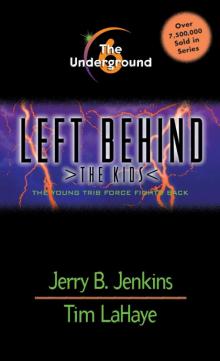 The Underground
The Underground Mark's Story
Mark's Story Shaken
Shaken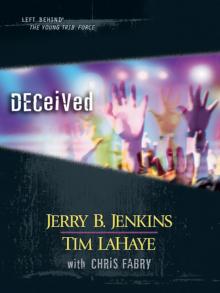 Deceived
Deceived Frantic
Frantic Riven
Riven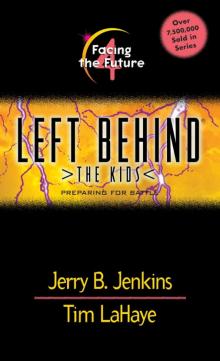 Facing the Future
Facing the Future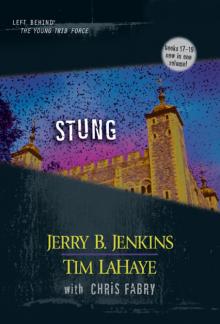 Stung
Stung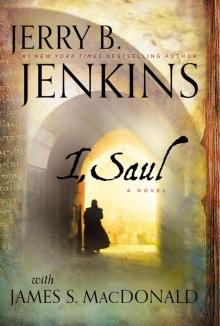 I, Saul
I, Saul Hunted
Hunted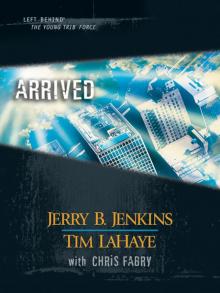 Arrived
Arrived John's Story
John's Story Stolen Secrets
Stolen Secrets